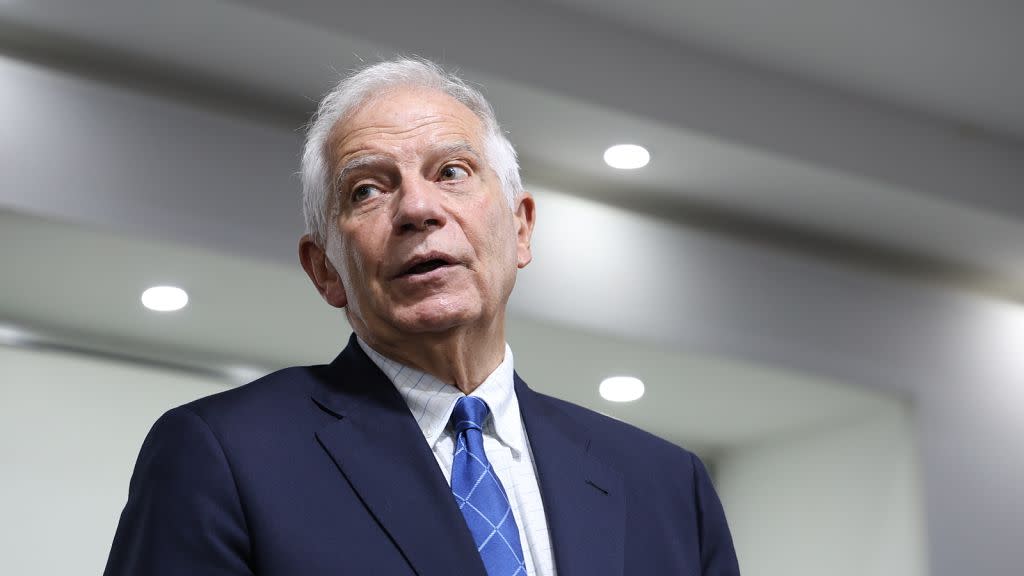Borrell condemns Knesset's rejection of Palestinian state after Hungary vetoes statement

- Oops!Something went wrong.Please try again later.
The EU's High Representative for Foreign Affairs, Josep Borrell, has issued a statement deploring a Knesset resolution rejecting Palestinian statehood, after EU member states failed to unanimously back the condemnation due to Hungary's holdout.
On Thursday, the Israeli parliament overwhelmingly approved a resolution that rejected the establishment of a Palestinian state, even if that state was part of a negotiated deal with Israel.
The text says that Palestinian statehood would pose an "existential danger" to Israel.
Borrell deplored the statement as a setback to international efforts to solve the long-standing conflict: "A credible pathway to Palestinian statehood is a crucial component of that political process. No hope, no horizon for the Palestinian people will only deepen the conflict," the statement reads.
But the bloc's failure to secure the necessary unanimity among its member states will likely undermine the condemnation.
The opposition came once again from Hungary, which has consistently derailed the bloc's statements on the conflict between Israel and Hamas since it first broke out last October.
Budapest has previously blocked an EU statement calling on Israel to refrain from striking the southern Gazan town of Rafah, and has derailed efforts to sanction extremist Israeli settlers responsible for violence in the occupied West Bank.
A high-ranking EU diplomat said that the Knesset's decision showed that there was now a "systemic issue" in terms of Israel's stance on the two-state solution, the internationally-endorsed plan to bring peace to the war-torn region by recognising a Palestinian state.
"Now, we have an overwhelming majority of the Israeli parliament, which represents the Israeli people, saying no to Palestinian state - that is a radical change," the diplomat said.
He added that twenty member states made suggested minor changes to the statement which were quickly approved, but that nothing could be done to bring Hungary on board.
It's another example of Prime Minister Viktor Orbán going against the grain of the EU's foreign policy.
On Monday, EU foreign ministers are due to gather in Brussels to discuss the ongoing conflict and its implications on the broader region, including plans to prop up the cash-strapped Palestinian Authority and reinstate an EU mission on the border crossing in Rafah.
Ministers are also expected to slam premier Orbán's recent self-proclaimed peace mission which saw him meet Russian President Vladimir Putin in Moscow. His government is blocking EU military and industrial aid worth €6.6 billion to Ukraine, as part of the European Peace Facility (EPF).

